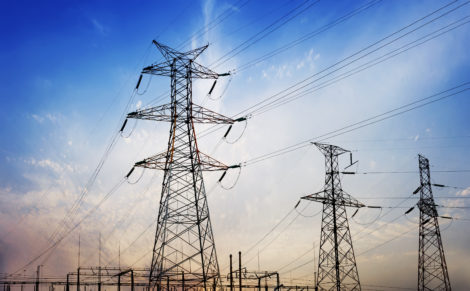Types of Medium/High Voltage Cable Tests
 Medium and high voltage power cables generate, transport, and supply energy within a power grid. They are critical assets used daily by many commercial, industrial, and utility operations nationwide. Over time, as the cable system ages, stress can be placed on the cables during routine usage. To guarantee the integrity of the cable system and prevent dangerous situations from happening, various tests can be performed to ensure the quality of the cables. The electrical contractors at NCE are sharing what faulty medium- and high-voltage power cables are and what to do to avoid disruptions.
Medium and high voltage power cables generate, transport, and supply energy within a power grid. They are critical assets used daily by many commercial, industrial, and utility operations nationwide. Over time, as the cable system ages, stress can be placed on the cables during routine usage. To guarantee the integrity of the cable system and prevent dangerous situations from happening, various tests can be performed to ensure the quality of the cables. The electrical contractors at NCE are sharing what faulty medium- and high-voltage power cables are and what to do to avoid disruptions.
Why Is Cable Testing Important?
Cable tests can help prevent and predict future faults in power grids. Field testing is performed for various reasons, such as acceptance after installation, general repairs, verification of splices, and more. The type of test and frequency depends on the procedures and quality controls of the company. If medium and high-voltage power cables are not properly maintained, they can become extremely dangerous. Proper management can ensure the cables are operating optimally to avoid loss of production and revenue.
The types of electrical cable testing can be performed by:
- Direct Current
- Power Frequency Alternating Current
- Very Low-Frequency Alternating Current
These tests can be performed during various stages of the cable systems life cycle and include:
- Installation Test – An installation test is conducted after installation but before adding accessories.
- Acceptance Test – An acceptance test is performed installing cables and accessories but before engaging system voltage.
- Maintenance Test – A maintenance test is conducted throughout the lifecycle of a cable system.
Many of the tests performed on cable systems are non-electrical, and they include areas such as:
- Abrasion testing
- Stripping
- Insulation, semiconductor, and outer-sheath thickness
- Aging of the covers
- Pressure on the sheath at a high temperature
- Auto-extinguishing properties
- Hazardous gas emissions
- Smoke emission and density
- Compatibility of all parts
- Corrosion testing
- And more
Electrical tests are performed on all finished cables and include areas such as:
- The electrical resistance
- High voltage test
- Outer-sheath dielectric testing
- Resistivity of insulation
- Semiconductor resistivity
- Long-term harmonized test, every two years
- Thermal cycling test followed by partial discharges
- And so more
These tests ensure long-term reliability and compliance with standards to prevent complications from arising.
Types of Electrical Cable Testing NCE Can Provide
At NCE, we utilize the industry standards for high voltage cable testing and diagnostics. We only partner with the top commercial cable companies across the country to ensure your facility’s cables always remain up to code. Our electrical engineers can test your faulty medium- and high-voltage power cables against either AEIC, ICEA, IEC, or IEEE standards. Our highly trained contractors can also provide:
- VLF Hipot Testing up to 138 KV Cable (200 KV peak)
- AC Resonant Hipot
- DC Hipot Testing (up to 600 KVDC)
- Partial Discharge Analysis (offline and online)
- Tan Delta Analysis
- Time Domain Reflectometer (TDR)
- Fault Locating
How NCE Can Help
If you’ve been searching for an electrical contractor who can perform high voltage cable testing near me, NCE can help. Since 1988, we have provided our customers with the highest level of service and customer care through our entire spectrum of offerings in the electric utility and power generation industry. We strive to be cutting-edge and industry leaders, presenting our customers with the most efficient preventative maintenance and testing programs. To ensure your facility is always up to code, contact our team of highly trained engineers today at (215) 945-7632 to schedule a free consultation.
